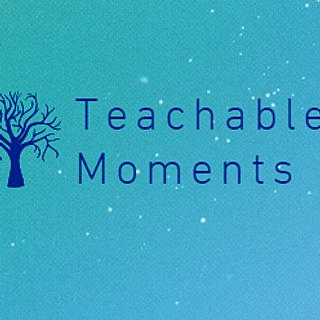Why I'm Glad I Got a Poor Evaluation
- Chelsea C
- May 20, 2017
- 4 min read
Updated: Aug 8, 2019
"Here's your evaluation," she said with a smile. "Thank you for all your help, and have a great summer!"
I walked away from that semester's placement one last time, waiting until I got home to read my evaluation. I left in good spirits as I reflected on all of the good moments I had with my students and supervising teachers: academic strides and progress made with students, creating connections with students, working well with a solid team.
Going into methods this fall, I felt that this evaluation would be somewhat telling in how prepared I was for the upcoming year. As I read the evaluation, comparing mine to theirs, I realized that I could recall specific situations in which their comments applied.
"Should abide by our rules instead of making your own." On a few occasions, I was left to watch the 10-13 students alone as the teachers were in the next room. It was an alternative school, so this was the entire school of students ranging from 7th-12th grade all of whom had been kicked out of their previous school or whose parents opted for them to be in a smaller environment. Students were put on levels of privilege freeze, level one, two, or level three. If students were on privilege freeze, they weren't supposed to talk to anyone except for the teacher for academic purposes, and others weren't supposed to talk to them. However, students on privilege freeze would have small conversations with me about little things like their shift last night, their new puppy, or what they did over the weekend.
According to their rules, however, I should've shut those conversations down. I should've missed out on learning more about my students, and building connections with them. I should've ignored them as punishment, even though many of them were in the school for social behavioral issues, for which positive interactions are extremely important for development.
"Focus more on tutoring instead of talking to students when working one-on-one." Since everything was based off of online curriculum, I would only get to tutor students as requested. The few times I got to work with students, though, we would get about a half hour into the lesson until the student would get off task. Sometimes this would be about small things that could wait for later or quickly chat about. Other times, it would be about a student talking about suicide, and how they've known at least five people to attempt and two to complete. Another time, it would be about the student's home life, and how they weren't sleeping much lately as they itched at their recent cut marks.
I should've followed their rules, and cut those conversations short to focus on the material. I should've placed value in the academics before the person.
At first glance, I was admittedly disappointed in myself for getting a poor evaluation. After five other placements, this was the first to give negative feedback. However, it was also the first to give honest feedback and really make me look at what I've been doing.
While it's important to respect and follow the environment that your school and teacher created, I decided to ignore one of the rules to prioritize building relationships with my students over punishment. Looking back on this decision, I believe that I'll have to be more careful working with my methods and student teaching CMT, and I do urge others to be mindful of balancing your beliefs with your teacher's. However, I stand by my decision to treat my students as people rather than inmates, which was what it truly felt like in combination with the rest of the environment.
I also acknowledge that you can't always get off task to have a conversation. I once had a teacher in high school who was notoriously distracted for literally half of the class if we asked enough questions about his son and family. However, I believe it's important to build a relationship with your students, especially in the beginning. It's a simple social skill: get to know and appreciate the people you're working with, and they'll want to work with you. It's also extremely important to give attention where it's needed when mental health topics are brought up. Just listening can be extremely important as it validates what they're saying and it shows that they're not alone, but I also think it ties into being a mandated reporter. If someone's safety is at risk, you absolutely should listen to that rather than push it away with the academic material.
Thankfully, this evaluation didn't have any weight on my grade or on any pay since it's really an internship. It was an eye-opener, though. I realized that our conflicts came down to a difference in pedagogy, and part of that meant that I have my own pedagogy. After first learning how to even say the word freshman year, I had finally established what matters to me as an educator and how I will run my own classroom. Even though it cost me a positive evaluation, I'm glad that I had dissonance within a school that was run like a jail and made students feel like they were even more misunderstood.


Comments